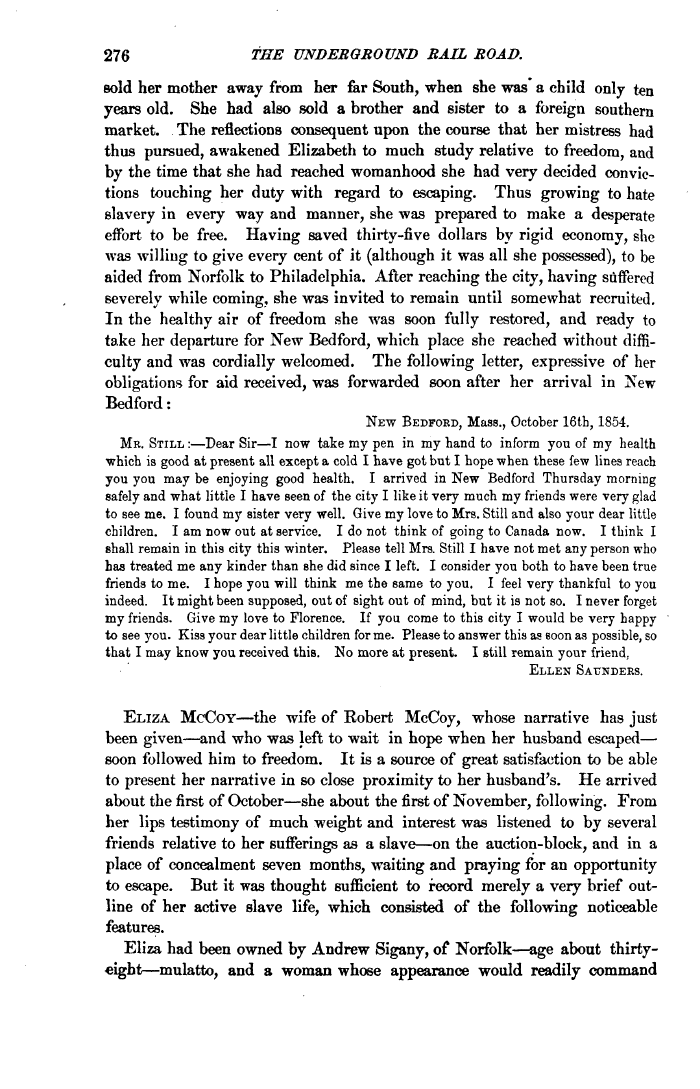 |
||||
 |
||||
| 276 TEE UNDERGROUND RAIL ROAD. sold her mother away from her far South, when she was a child only ten years old. She had also sold a brother and sister to a foreign southern market. The reflections consequent upon the course that her mistress had thus pursued, awakened Elizabeth to much study relative to freedom, and by the time that she had reached womanhood she had very decided convictions touching her duty with regard to escaping. Thus growing to hate slavery in every way and manner, she was prepared to make a desperate effort to be free. Having saved thirty-five dollars by rigid economy, she was willing to give every cent of it (although it was all she possessed), to be aided from Norfolk to Philadelphia. After reaching the city, having suffered severely while coming, she was invited to remain until somewhat recruited. In the healthy air of freedom she was soon fully restored, and ready to take her departure for New Bedford, which place she reached without difficulty and was cordially welcomed. The following letter, expressive of her obligations for aid received, was forwarded soon after her arrival in New Bedford: NEW BEDFORD, Mass., October 16th, 1854. MR. STILL :—Dear Sir—I now take my pen in my hand to inform you of my health which is good at present all except a cold I have got but I hope -when these few lines reach you you may be enjoying good health. I arrived in New Bedford Thursday morning safely and what little I have seen of the city I like it very much my friends were very glad to see me. I found my sister very well. Give my love to Mrs. Still and also your dear little children. I am now out at service. I do not think of going to Canada now. I think I shall remain in this city this winter. Please tell Mrs. Still I have not met any person who has treated me any kinder than she did since I left. I consider you both to have been true friends to me. I hope you will think me the same to you. I feel very thankful to you indeed. It might been supposed, out of sight out of mind, but it is not so. I never forget my friends. Give my love to Florence. If you come to this city I would be very happy to see you. Kiss your dear little children for me. Please to answer this as eoon as possible, so that I may know you received this. No more at present. I still remain your friend, ELLEN SAUNDEES. ELIZA McCoY—the wife of Robert McCoy, whose narrative has just been given—and who was left to wait in hope when her husband escaped— soon followed him to freedom. It is a source of great satisfaction to be able to present her narrative in so close proximity to her husband's. He arrived about the first of October—she about the first of November, following. From her lips testimony of much weight and interest was listened to by several friends relative to her sufferings as a slave—on the auction-block, and in a place of concealment seven months, waiting and praying for an opportunity to escape. But it was thought sufficient to record merely a very brief outline of her active slave life, which consisted of the following noticeable features. Eliza had been owned by Andrew Sigany, of Norfolk—age about thirty-«igbt—mulatto, and a woman whose appearance would readily command |